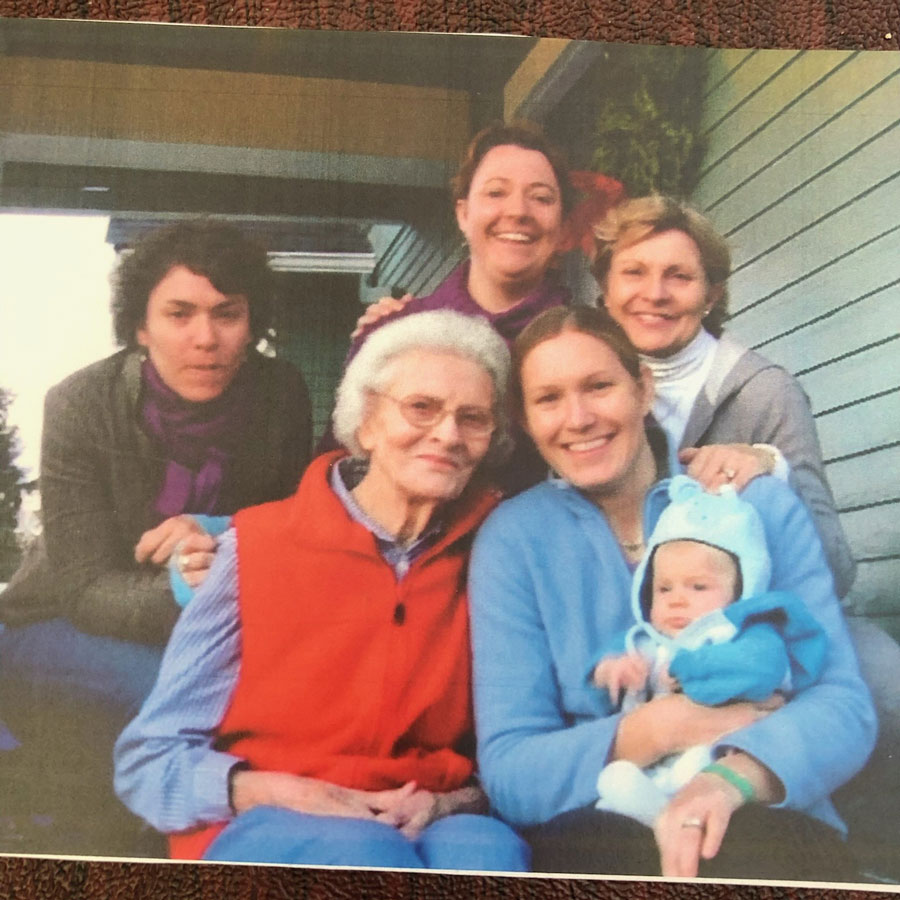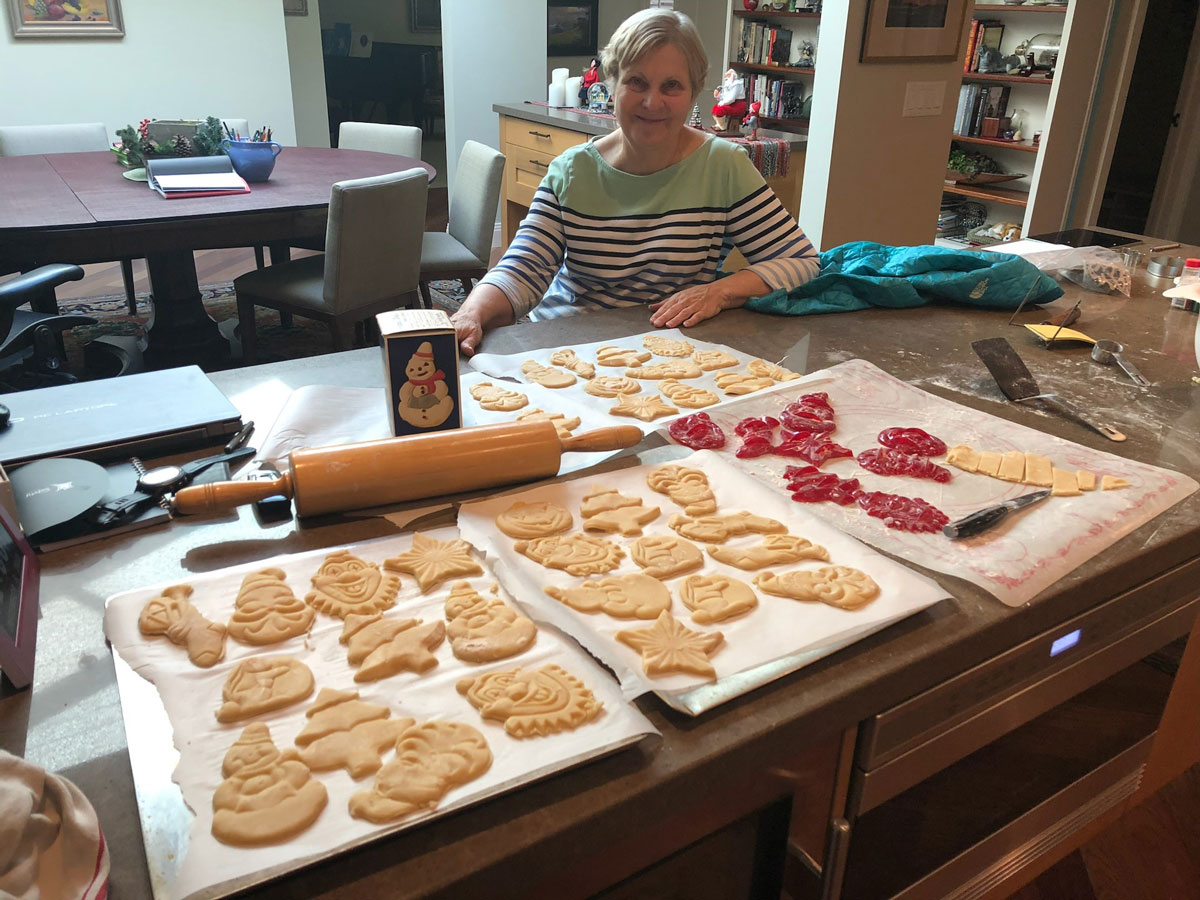Family Dynamics
Our Family Mission Statement
We recognize Susie is a PERSON living with dementia. It is our mission to have Susie receive loving care at home throughout the stages of this disease.

Begin With the End in Mind (Stephen Covey)
We envision creating an environment at home that will recognize Susie as a person which implies recognition, respect & loving care. The focus is on supporting day to day functioning rather than directly aiming to improve cognition.
The loved one remains the person you have always known: often a partnership of decades of trust and support. The emotional memories never leave – however, because of the decline in cognitive ability, constant reinforcement by the caregivers is critical to maintaining an emotional connection that the loved on can still trust and rely on. This support and empathy reinforce their comfort, attachment, inclusion, occupation & identity. This means being generous, forgiving and giving unconditional acceptance – a wholehearted emotional giving, without any expectation of direct reward.
Defininitions & Research: Comfort, Attachment, Inclusion, Occupation & Identity
As defined from the book: “Dementia Reconsidered, Revisited – The Person Still Comes First” Tom Kitwood and edited by Dawn Brooker
This is our #1 book recommendation.

Comfort
Inclusion
Identity
Attachment
Occupation
Summary
The primary task in being the care partner is to maintain the personhood of the person living with dementia in the face of failing or mental powers. As written by Kitwood– “Now it is possible to go further, and suggest that this will occur through the sensitive meeting of this cluster or needs. If one main need is met, this will have an effect on the other needs too. For example, a person who feels more secure in attachment is likely to give more attention to an occupation, being less distracted by anxiety and less invaded by fear; as a result of having a higher level of engagement. As the whole cluster of needs is met, it is likely that there will be an enhancement of the global sense of self-worth, of being valuable and valued. At some point in the meeting of needs a person may be enabled to move out of grief and anger, into the domain of positive experience that we have thus far left uncharted”.


The importance of addressing family dynamics
Note from Melissa Mauchley, LCSW, MSW
melissa.mauchley@hsc.utah.edu – clinic # 801-585-7575
Social Worker / Patient & Family Support, University of Utah
Caring for a loved one who is experiencing dementia can be emotionally, physically, and mentally challenging. Most caregivers are a spouse or child who regularly sacrifices their own needs and wants as they seek to meet the needs of their loved one with dementia. Caregivers offer increasing assistance and support, and really, a new form of love to the person they married, partnered with, or maybe raised them, because that person is slowly changing. The impact of dementia causes permanent changes in their person; the dementia journey is often known as the “long goodbye”.
It’s hard for most caregivers to ask for help on their journey with dementia, to be honest, it’s hard for most of us to ask for help. And yet, help is what is needed for the person living with dementia and for their caregiver.
This website that Peter has created on behalf of his wife, Susan, is a meaningful example of the kind of help that is available, from the national websites to dementia-friendly clothing to local classes that he has shared, this website is meant for you, the dementia caregiver. And Peter may not know each of you, but he knows what it is like to be a dementia caregiver. He understands those first times when maybe you notice some issues with memory, to gradually increase support, to wondering if you’re “doing” caregiving right, to grieving, and what it’s like to ask for and seek help. It all takes courage.
If you are a dementia caregiver, you are not alone. If you see some of your own experiences in Peter and Susan’s dementia journey, I hope this website offers you the support and resources you need. And just as Peter has shared, support can also come from such places as your local aging services, from agencies who provide in-home assistance, from therapists, and from caregiver support groups and individual counselors. There is a community of people who can offer support to you as you offer support to your loved one.
Melissa Mauchley, LCSW, MSW
Social Worker / Patient & Family Support
Strategies that can strengthen family dynamics:
- Every person living with dementia has different behaviors – no two people are the same. The only constant is that behaviors change over the duration of the disease. It can be extremely frustrating, and at times exhausting, to deal with the behaviors. Family members need to recognize the challenge and help each other through the journey.
- The primary caregiver should establish a team of consultants including a professional family counselor, a personal psychiatrist to be seen quarterly and a medical doctor with expertise in geriatrics care seen as needed, but at least every six months. Financial and legal advisors should help establish plans for future and, once in place, review every year. Please refer to our Resources page for helpful caregiver resources.
- The Primary Caregiver needs to be in charge and set the tone and parameters of care, develop a plan of needs, and be transparent; communicate openly and honestly to the immediate family, siblings and friends. Such a plan will help eliminate criticism. Use your team of councilors to help develop such plans.
- 83% of people with dementia are cared for in their or the caregiver’s home (adult children, etc). 33% of caregivers die before the person with dementia. Therefore, it is critical to monitor the well-being of the primary caregiver as to their mental and physical status.
- It is critical that the primary caregiver has a routine that allows for respite time. Provide consistency in meeting the needs of the caregiver to continue some normal activities in their life. Respite time is necessary for the well-being of both people. (see our frequently asked questions and resources pages)
- Although it can be very challenging, do not argue with the loved one. They are dealing from an emotional level and you’re challenging with cognitive logic. You will not win – and the energy wasted in arguing will increase the anxiety for both parties. Kiper writes, “As caregivers, we sometimes vent our anger despite realizing that a loved one has already forgotten the reason we’re upset or can not follow what the caregiver is saying.” Develop techniques to divert the discussion to other activities, even if it’s just a walk around the home or outdoors. It is ok to even tell a white lie to allow the loved one to win.
- Being transparent and sharing knowledge of the disease and expected behavior allows family members to be involved as much as they wish. Family and friends may want to assist with care – allow them help, even if just a good visit. Often just a call to show emotional support is as good as being physically present.
- Criticism of care should never be in front of the loved one. Arguments can escalate when the person criticizing the care does not understand the behaviors associated with the various stages of Alzheimer’s disease. Suggest readings to educate them on the disease. If appropriate, and ok with you, can also ask if they would like to be involved in the caregiving to obtain a better understanding. (Walk a mile in my shoes).
- Should the loved one become aggressive to a point of danger to themselves or others OR the caregiver has medical / physical issues that limits ability to care for loved one, alternate care centers need to be considered. Plan in advance.
- Be aware if a loved one is placed in a care center, that they can very quickly become disoriented with the new surroundings and routines and it is typical that the anxiety levels as well as behaviors will change.
- As the disease progresses, the caregiver needs to address the ability of the loved one to travel or attend social functions. If not monitored, anxiety levels increase and behavior patterns will change most often to the detriment of all concerned. The primary caregiver should look at events through the eyes of the loved one and determine if the current situation is in the best interest of them.
Communicating with primary care partner and family:
- Every family is different, but realize that transparent, frequent communication about the loved one’s disease and progression, as well meeting the needs of the primary caregiver, is essential.
- It is important to support each other and communicate about life that is NOT centered around care giving and the disease. Our family has a text thread, where we stay updated with fun photos and activities in each other’s lives, or just have informal, cheerful check-ins. Frequent phone calls to check in (weekly at least) keep us well connected, as do FaceTime calls, especially enjoyable with the grandchildren.
- After medical visits or when care shifts, my dad emails the three daughters, and also communicates with his siblings and friends to different degrees. Usually during in-person visits we dedicate time for long-term planning, organization, estate communication, and medical updates. The professional caregiver can add insight to the family dynamics.
- The emotional well being and trust the loved one feels for the caregivers often increase even with cognitive decline. In fact, they can increase and flourish with kind, gentle care giving. New emotional memories can be formed – either positive or negative – during all phases of the disease. Constantly remind the loved one how much they mean to you – through words and actions.
Does Susie remember you and the kids and friends?
- How’s Your Mom? – We recommend listening to this recording from This American Life. Very powerful lesson on the importance of recognizing your loved one as a person who is still with us. Such recognition will greatly reinforce their trust and emotional well being. Sue may not remember your name (does it really matter – no), but she will always respond to kind words and actions.
- People with dementia can, in fact, learn new things, make new friends, and make new long-term memories of those who treat them kindly as well as those who treat them badly. (From writing in; Dementia Reconsidered, Revisited – The Person Still Comes First” Tom Kitwood and edited by Dawn Brooker Kitwood )
